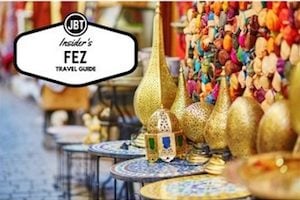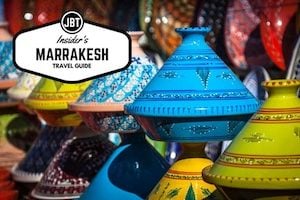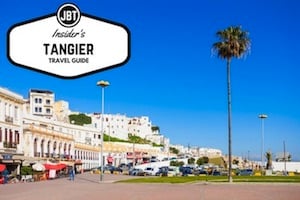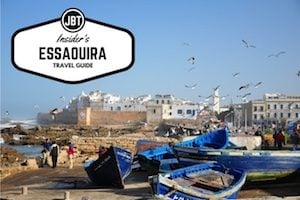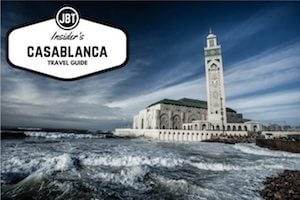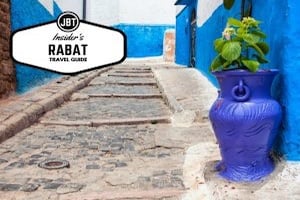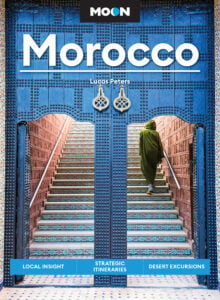We came to Marrakesh for our kids’ fall school break.
After a busy few months in Tangier, we wanted a week to unwind, splash, and let the kids burn energy in the sunshine. Both of our children are little fish — happiest piloting around in the water — so we looked for a place with big pools and a range of amenities, from a Moroccan restaurant to an Italian trattoria.
Our Family Stay at Le Grand Savoy Marrakesh
Le Grand Savoy bills itself as a five-star — though priced toward the lower end of that tier for Marrakesh. I’ll come back to that later.
On paper, it ticked every box: family-friendly, multiple pools, a spa, even an on-site EV charging station for our hybrid Jeep. It looked like the easy choice.?
So, we booked it.
Promises, Promises
Our plan was simple: let the kids swim, maybe enjoy a proper hammam experience together (the hotel even advertised a “hammam for kids”, which sounded delightful), and use the week to relax as a family. We enrolled our two kids in an outdoor Waldorf-Steiner day camp so we’d have time to work and meet partners and travelers overlapping our stay in Marrakesh.
But from the moment we arrived, small disappointments began stacking up.
At check-in, it was obvious that a major construction project was underway — a new restaurant being built directly above the lobby. All day long, jackhammers rattled the ceilings and cranes loomed outside. I was assured the noise wouldn’t reach our rooms, and it didn’t, but it echoed around the pools and courtyards. In the corridors, the air was heavy with synthetic perfume, as if to cover the noise or distract from it. Out front, staff leaned against the wall smoking beside taxis waiting to overcharge guests.
When we finally reached our rooms, they were fine — large and clean, if a little dated. The wood floors were lovely; the terraces bright, facing the airport. But the suite we’d reserved had one large matrimonial bed and nothing for the kids. The bellhop smiled and said he’d tell his manager.
It took two hours, several trips down to reception, and a lot of polite finger-pointing — “That’s not my department, sir” — before extra beds appeared.
Later, at the fitness center, I discovered towels were required but not provided. The attendant told me to walk across the football-field-sized courtyard, take the elevator to the fourth floor, and fetch one from my room. When I hesitated, she shrugged and suggested I borrow from the pool area. No offer to help. No “let me take care of that.” Just procedure.
The staff were polite enough, but no one went out of their way for anything. You could sense the script: friendly smiles without warmth.
It wasn’t hostility — just indifference, which in hospitality can sting even more.
And I want to be clear: this isn’t me picking on Le Grand Savoy alone. This sort of service is common in big-box hotels across the world. In truth, in Morocco the service from large one-star properties to global five-star brands often feels indistinguishable. There are exceptions, of course — but not many.
The “five-star” system itself is part of the problem: it rates amenities (pool, spa, gym, concierge) rather than hospitality.
For us, the other letdowns piled on: the EV charging station didn’t exist, the “kids’ hammam” was a marketing mirage, and both hot tubs were ice-cold — unusable in late October unless you fancied an ice bath. None of this was catastrophic, but it painted a picture: a property run by systems, not by people.
If I’d been told this was a nice three-star or budget four-star, my expectations would have been met.
Greenwashing 101
Interestingly, the Le Grand Savoy’s owner-operator, Pick Albatros Hotels & Resorts — a large regional hotel chain — claims a “Sustainable Management Policy” via the Green Star Hotel program, pledging ethical employment, community support, and environmental compliance (Here is their policy link).
Yet on the ground, our stay revealed contradictions familiar to anyone who’s spent time in large chain resorts: plastic water bottles throughout the suites, plastic toothbrushes instead of bamboo, single-use shampoo and shower-gel bottles, and more.
Gaps like these show how large-scale, chain-style resorts — even with sustainability policies — can struggle to turn policy into practice. What appears in a brochure and what happens in reality are rarely the same. For travelers who care about their footprint, that gap is more than disappointing; it’s textbook greenwashing.
Why We Don’t Use Hotels Like This
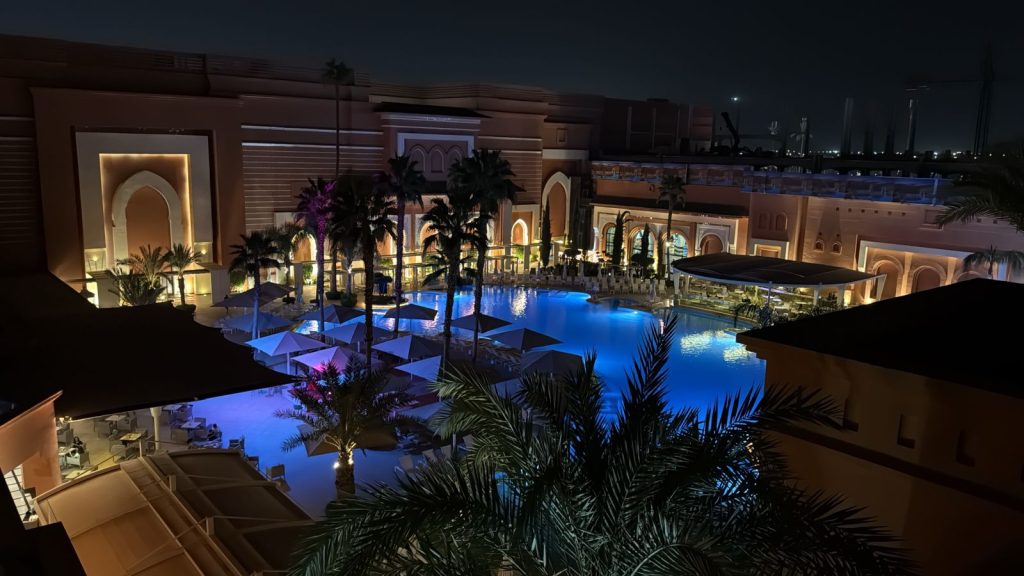
That’s when it hit me: this is exactly why Journey Beyond Travel doesn’t use places like this — it’s also why we’d never stay at a Hilton.
Because what’s missing in hotels like Le Grand Savoy — and in big brands like Hilton or Fairmont — is something no marble lobby can replace: soul.
At Journey Beyond Travel, we work with small, character-rich properties that are as much about people as place. In Marrakesh, that might mean a restored riad hidden in the medina, where the owner’s daughter plays with your kids in the courtyard while her mother prepares msemen for breakfast. Or a family-run kasbah in the High Atlas where the mountain air smells of cedar and mint, not perfume.
These are the kinds of places that welcome you home, even if you’ve never been there before. Hospitality isn’t a performance — it’s a way of life.
The Difference Is in the Details
When something small goes wrong in a boutique riad — and occasionally it does — it’s met with warmth and creativity. Someone steps in. Someone cares.
At Le Grand Savoy, as in so many other hotels like it, everything sorta works … technically. But no one really cares.
That, to me, is the difference between a stay that’s fine and one you’ll remember for the rest of your life.
The Heart of Our Philosophy
We’re not against luxury — or going high-end. And occasionally, we’ll even use a larger resort property when we feel it truly gets it right and you can feel the care. Many of the properties we choose are exceptionally comfortable for their category — some even take-your-breath-away beautiful.
But we are against sameness.
Big-box hotels are built to replicate an experience. We curate properties that reflect one.
Because for us, travel isn’t about checking into a brand; it’s about connecting with a story. It’s about hearing the call to prayer drift through a courtyard instead of karaoke echoing down a hallway. It’s about finding care, pride, and local character in every detail.
That’s what we mean when we say “boutique.”
Sustainability, Plainly
Big hotels concentrate bodies, buffets, laundry, and landscaping — and thus concentrate water and energy use, waste, and transport needs. Global tourism policy groups such as the OECD and UN World Tourism Organization push destinations to measure these footprints locally — water consumed, waste generated, jobs created — because impacts are felt in neighborhoods, not corporate dashboards.
Boutique, locally owned properties tend to be smaller, denser, and adaptive (think: courtyard houses with passive cooling, shorter supply chains, fewer imports), which lowers resource intensity and keeps more spending circulating nearby.
A Quick Deep Dive: Where Your Money Actually Goes
Economists call it tourism leakage — the share of your spend that leaves the destination through imports, foreign ownership, and profit repatriation. In many developing destinations, leakage can be extremely high: UNEP and UNWTO figures often cited in the literature show up to ~40 % in India, ~70 % in Thailand, and ~80 % in Caribbean economies (airlines, foreign-owned hotels, imported food).
For Morocco, research suggests the inverse: often under 20 % of total tourist spending remains in the local economy (Fair Observer).
By contrast, studies of small, locally owned hotels show much lower leakage — about 10 % — because owners buy and hire locally and reinvest nearby.
If you’re curious how big-box brands move money upstream, it’s straightforward:
- Franchise agreements: local owners pay ? 5–6 % royalty on room revenue plus ? 2–4 % for marketing/reservations.
- Management agreements (HMAs): operators take ? 2–4 % of total revenue and ? 10 % of gross operating profit.?Add imports (fit-outs, F&B, branded amenities) and repatriated profits, and the leakage picture sharpens: more of your spend exits the community.
Classic analyses by the OECD, UNWTO, WTO, and UNEP all highlight these same channels — imports, management fees, marketing outlays, and debt service — as key leakage pathways.
Disclaimer: not all chains are the same, and local impact varies by ownership, management, and ESG practice. But the lesson remains: going smaller makes a bigger local impact on your hard-earned travel dollars.
When you choose a locally owned riad or lodge — the kinds of places we vet — a higher share of your spending pays local salaries, buys food from local suppliers, funds maintenance by local trades, and stays in the community. The experience feels better … and the economics are better too.
Why This Matters for Travelers
When you travel with Journey Beyond Travel, nearly every one of your stays supports a local family or independent business. The money you spend goes directly into the community — into wages, maintenance, and education. It circulates where it matters most and has the greatest local impact.
More importantly, it deepens your experience. It connects you with the Morocco we know and love — a place of warmth, craftsmanship, and genuine welcome.
So no, you’ll never stay at Le Grand Savoy — or use your Hilton points — with us.
But you’ll stay somewhere that remembers your name, your kids, your story. And you’ll leave feeling like you’ve truly been in Morocco.
And that, in every way that matters, is a damn good thing.
In the End, It Was Still About Family

And yet, in between the jackhammers and the tinny music, there were still moments that mattered. The kids didn’t care about the cranes over the lobby or the freezing hot tubs — they just wanted to swim. So we did. We spent hours splashing in the chilly pool, laughing, chasing each other through the water, and warming up in the late-autumn sun.
And as much as we thought the buffet breakfast a touch underwhelming — and cringed at the wastefulness of it all — it was still a highlight for our kids, who wandered wide-eyed, plates in hand, delighted by every new puff pastry, pancake, or yogurt parfait.
That’s the thing about family travel: even when the setting isn’t perfect, the time together can be. We made the best of it — enjoying our week, ignoring the cigarette smoke by the entrance and the over-perfumed hallways, reminding ourselves that this was still our time.
But every little friction — the missing amenities, the indifferent service, the sense that no one really cared — confirmed what we already knew deep down.
For us, travel isn’t about a room with a view or a pool with a bar. It’s about people who notice when you’ve arrived, who bring towels before you have to ask, who care about the details because they care about their craft. That’s what we seek for our travelers at Journey Beyond Travel.
And as I watched our kids jump one last time into the cold blue water, laughing wildly and shivering with joy, I realized something simple: even the imperfect stays can teach us exactly what matters most.
That’s why we do what we do — to make sure your memories are shaped not by missed towels and plastic bottles, but by warmth, welcome, and genuine connection.
About the Author

Written by Morocco expert, award-winning author and photographer Lucas Peters. After spending years driving in a combination of rental cars and an old Honda CRV to the distant corners of Morocco, he pens the popular Moon Morocco. He lives in Morocco with his family… and these day drives a 2022 Jeep Wrangler 4XE plug-in electric, to and from Europe and all around Morocco.


